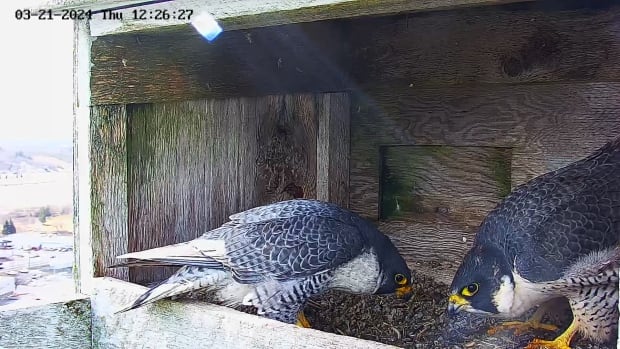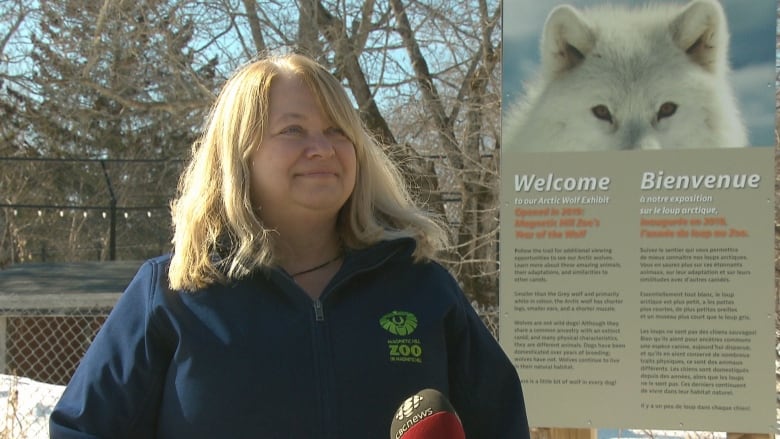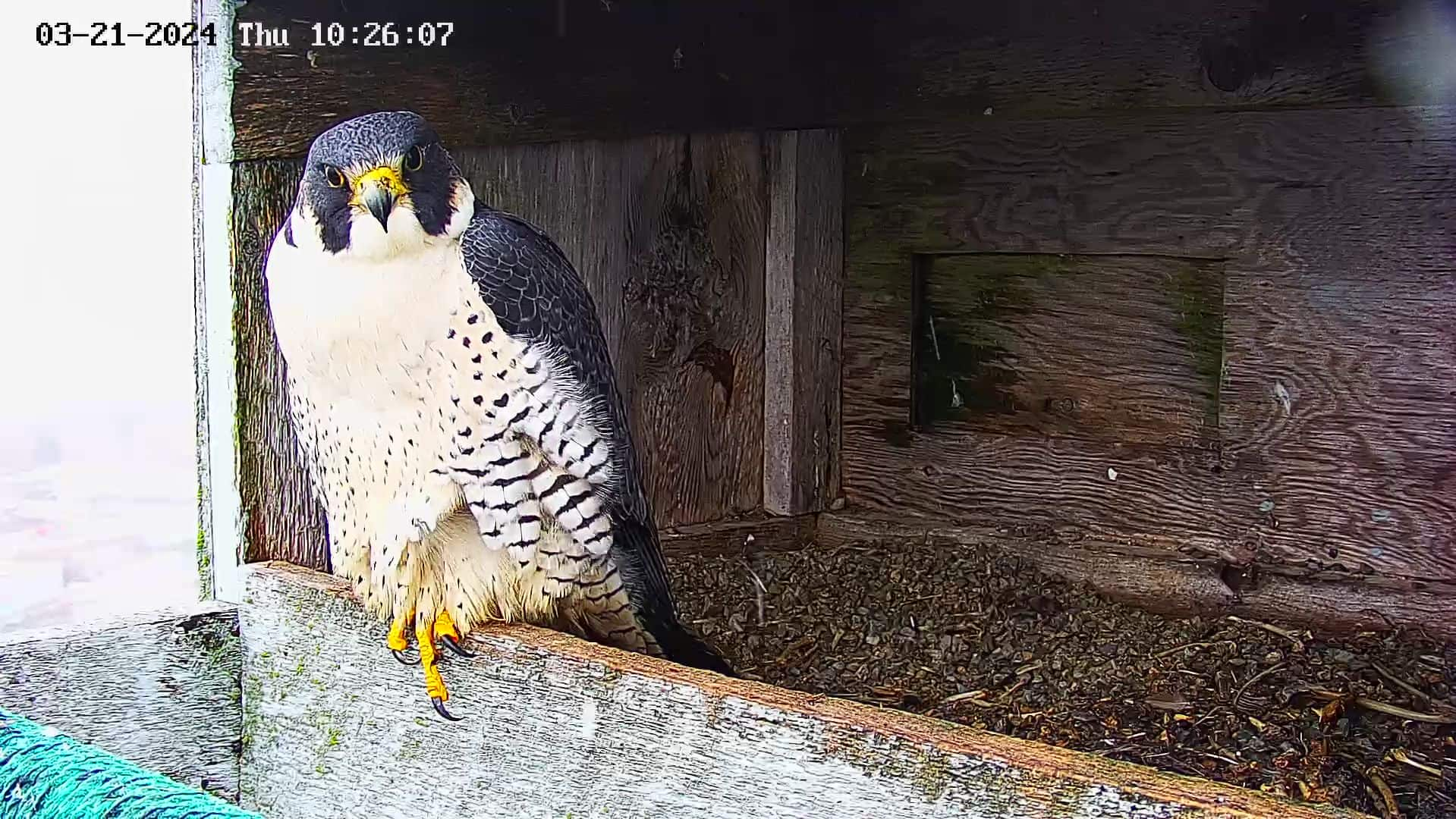
Two peregrine falcons living in a nesting box atop the Assumption Life building in Moncton for the past 13 years are about to become famous — thanks to a new live video feed that will allow them to be observed 24 hours a day.
Peregrine falcons are birds of prey that feed on smaller birds. They are the fastest birds in the world and can reach speeds of up to 300 kilometres per hour while diving for prey. Until recently, peregrine falcons were considered an endangered species.
Fred Richards of Nature Moncton said installing a live cam has been a goal since the nesting project began in 2011.
“I believe that an informed public when it comes to nature and conservation is very important, and this will hopefully be a high-profile look at peregrines.”
Moncton’s Magnetic Hill Zoo hopes viewing the falcons in their nest will inspire viewers to take action on environmental issues.
Richards said it has been an exciting week for members of the group, to see the project come to fruition.
That excitement is shared with the team at the Magnetic Hill Zoo, a partner on the project.
Jill Marvin, director of the Magnetic Hill Zoo and Park, has been tuned into the livestream, which can be accessed through the zoo’s website, since its launch earlier this week.
“We’re just excited for people to understand that right here, right in downtown Moncton, there is a peregrine falcon nest sitting up on one of the tops of the buildings. ”

Peregrines have adapted to life in urban environments, Marvin said, with high-rise structures emulating the cliffsides they would live on in their natural habitats.
She said the birds actually benefit urban environments by controlling the population of smaller birds, such as pigeons.
Marvin hopes the public will take the time to learn about falcons and the recovery of their population.
She says that in the 1970s there were threats of the bird becoming extinct because the spraying of pesticides, such as DDT, weakened their eggs and caused them to collapse.
Through government action, the work of non-profits and researchers, Marvin says the population has grown.
“It’s one of those happy stories where yes, human interference did lead to the potential extinction of this species but it also shows us that working together, and being inspired by these birds, we can take positive actions and actually reverse what we may have impacted on.”
Marvin said she hopes viewers of the live cam will get a chance to see the falcons living in the nest, laying eggs and raising their chicks.
But the viewing does come with a warning. The livestream is unfiltered and the falcons may bring live prey back to the nest, she said.


